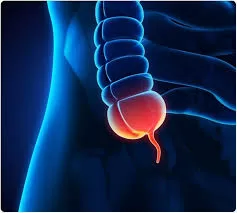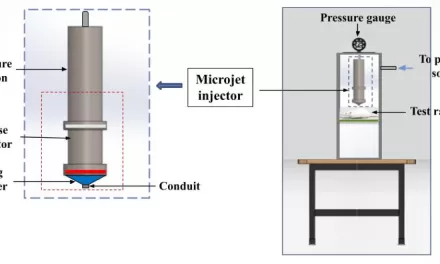August 14, 2024 – New Delhi – The challenge of diagnosing appendix cancer in its early stages is gaining increasing attention from medical experts, as the disease often remains asymptomatic until it reaches advanced stages. This difficulty in early detection significantly impacts treatment outcomes, specialists warned on Wednesday, coinciding with the beginning of Appendix Cancer Awareness Month.
The appendix, a small, pickle-shaped organ attached to the colon, is primarily known for its role in appendicitis—a common issue that generally requires surgical intervention. However, appendiceal cancer, though rare, poses a more complex diagnostic challenge due to its lack of specific symptoms and its tendency to be discovered incidentally.
“Appendiceal cancer was previously classified under intestinal cancers, including those of the small and large intestines. However, recent understanding has recognized it as a distinct entity,” said Dr. Shubham Jain, Senior Consultant in the Department of Surgical Oncology at Rajiv Gandhi Cancer Institute and Research Centre (RGCIRC). “The rarity of this cancer means it is often misdiagnosed as acute appendicitis, leading to an appendectomy followed by a biopsy that confirms the cancer. Unfortunately, this means most cases are detected only at advanced stages.”
Experts note that the subtlety of initial symptoms complicates the early diagnosis of appendiceal cancer. Early-stage symptoms, if present, may include mild and non-specific abdominal discomfort, changes in bowel habits, unexplained diarrhea, weight loss, fatigue, or a palpable mass in the abdomen. More severe symptoms, such as inflammation of the abdominal lining, typically occur if the appendix ruptures.
Dr. Vinay Gaikwad, Director of Surgical Oncology at CK Birla Hospital in Gurugram, highlighted that appendiceal cancer is more common in women and its incidence increases with age. Risk factors include smoking, family history, and certain pre-existing conditions like atrophic gastritis or pernicious anemia.
“The majority of appendiceal cancers are unfortunately identified only after an appendectomy, often when more aggressive forms like appendiceal adenocarcinomas are present. These behave similarly to colorectal cancers and are challenging to treat in advanced stages,” Dr. Gaikwad explained.
Current treatment strategies typically involve surgical intervention, including complete cytoreductive surgery and Hyperthermic Intraperitoneal Chemotherapy (HIPEC). While the treatment can be effective, it may also affect fertility as a side effect. However, advances in treatment options, including improved understanding of tumor biology and aggressive surgical approaches, are contributing to better outcomes.
“Early diagnosis and treatment are crucial for improving survival rates and quality of life for patients with appendiceal cancer,” Dr. Gaikwad emphasized. “As awareness grows and research continues, we hope for enhanced diagnostic methods and more effective treatments.”
As Appendix Cancer Awareness Month unfolds, raising awareness about this rare but serious cancer remains vital for improving early detection and treatment strategies.












